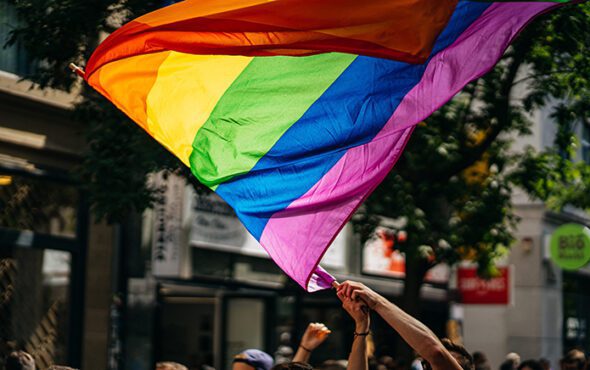
LGBTQ+ journalists in the UK face “high levels” of abuse and a majority do not feel adequately protected by their employer, according to a groundbreaking new study.
The research, which was commissioned by the Sir Lenny Henry Centre for Media Diversity (LHC), found that online abuse targeting the sexual orientation and gender identity of LGBTQ+ journalists is now commonplace.
More than eight in 10 (82 per cent) respondents shared that they had faced online trolling, while over half (56 per cent) were subjected to homophobic harassment.
Many also believe their role to be dangerous, with 76 per cent of those surveyed either disagreeing or strongly disagreeing that media organisations are adequately protecting them from harassment and abuse.
READ MORE: Hate crimes reach record high in England and Wales as anti-trans offences double
Half of study participants said that they wouldn’t know who to reach out to at their work for support if they were to become the focus of a targeted harassment campaign online.
Twitter was found to be the most common social media platform where online harassment or abuse took place, followed by Facebook and Instagram with 88 per cent, 33 per cent and 24 per cent of respondents experiencing it on said platforms, respectively.
Almost three quarters (74 per cent) of the professionals surveyed reported feeling anxiety over the abuse they received.
The so-called ‘trans debate’ was mentioned throughout the research as LGBTQ+ journalists who engage in the current media coverage were proven to face high levels of abuse.
“Hate speech and abuse against LGBTQ journalists has the potential to create a chilling effect”
“If left unchecked, hate speech and abuse against LGBTQ journalists has the potential to create a chilling effect where journalists are either uncomfortable or afraid to report on vital issues of importance to LGBTQ people,” said Toesland.
READ MORE: 9 in 10 people believe UK media’s reporting on so-called ‘trans debate’ is harmful
The study saw calls from respondents for journalism training to include how to manage online threats, as well as further training for executives on how abuse against journalists can impact them personally and professionally.
The research report, which is officially titled ‘Are media organisations adequately protecting LGBTQ journalists from harassment and abuse?’ was produced by award-winning journalist Finbarr Toesland with academic supervision from researcher Dr Poppy Wilde at Birmingham City University’s School of Media.
You can read the report in full here.



